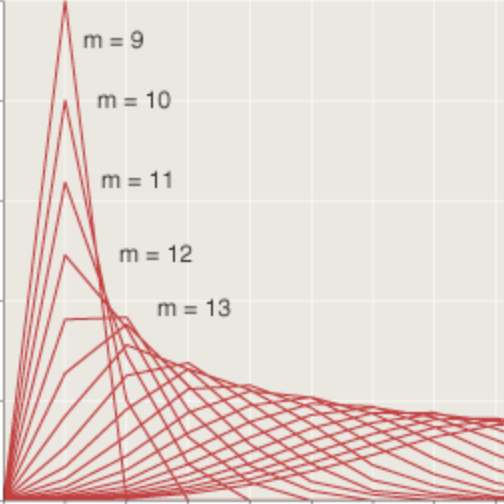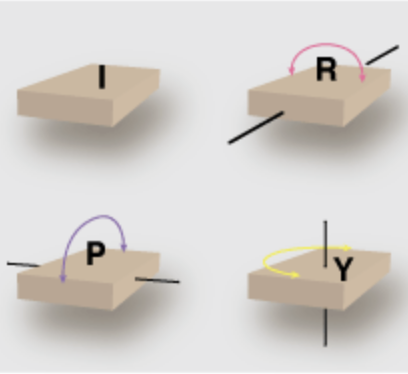Electoral Rehex
by Brian Hayes
Published 15 May 2008
A few weeks ago I playfully suggested that the Democratic nominee for POTUS might be selected this year by a game of hex played on the map of the lower 48 states. I emphasize the word “playfully.” This was not a serious suggestion. But life has a way of overtaking us, even in our most frivolous moments. As the primary season now spirals down to the last bitter dregs, the nomination remains undecided, and so does the game of electoral hex.
The goal in this version of hex is to assemble a continuous chain of states that spans the country either east to west or north to south (or both). As the map below shows, both candidates are tantalizingly close to this goal, but neither has actually achieved it. The recent round of voting in North Carolina and Indiana, and then yesterday’s result in West Virginia, failed to clinch it.

But it will all be over soon. Kentucky is the key. The nomination may or may not be settled after that state’s primary election next Tuesday, but the game of hex will surely be decided, one way or the other. Whichever candidate wins Kentucky will form both east-west and north-south chains, and his or her opponent will be shut out from creating either kind of chain.

Update 2008-05-21: Game over. As the map from today’s Times shows, Hillary Clinton percolates. She can drive coast to coast or border and border and never stray outside of states that supported her candidacy. As far as I know, she has not yet cited this fact in support of her decision to stay in the race; maybe she’s saving that argument for the convention.
Responses from readers:
Please note: The bit-player website is no longer equipped to accept and publish comments from readers, but the author is still eager to hear from you. Send comments, criticism, compliments, or corrections to brian@bit-player.org.
Publication history
First publication: 15 May 2008
Converted to Eleventy framework: 22 April 2025




Among its many virtues, political hex (or “pox”) would prompt a careful definition of what it means for a candidate to “win” a state. Note that Clinton is credited with wins in Nevada and New Hampshire, even though Obama wound up with more delegates in NV (13 to 12) and the same number in NH (9-9). Texas is more complicated: Clinton “won” the primary, while Obama “won” the caucus contest and came out ahead overall in delegate count, 99 to 94. (There is a nice interactive map with all kinds of information at http://www.npr.org/news/specials/election2008/2008-election-map.html.) As it happens, none of these states is hex-decisive this time around, but you can’t count on that being the case in 2012.
On top of this, should one not also count the superdelegates from each state as they commit to one candidate or another? I wonder if there are any sates where the (current) superdelegate count switches the lead from one candidate to the other.
Clinton wins!
Your spam screener could be defeated by an intelligent spambot who kept guessing integers or had some simple sequences programmed in. A better screener might be one where the answer is not implicit in the question, say something easily Googleable, like What was Turing’s first name? Or what is the capital of Fiji?